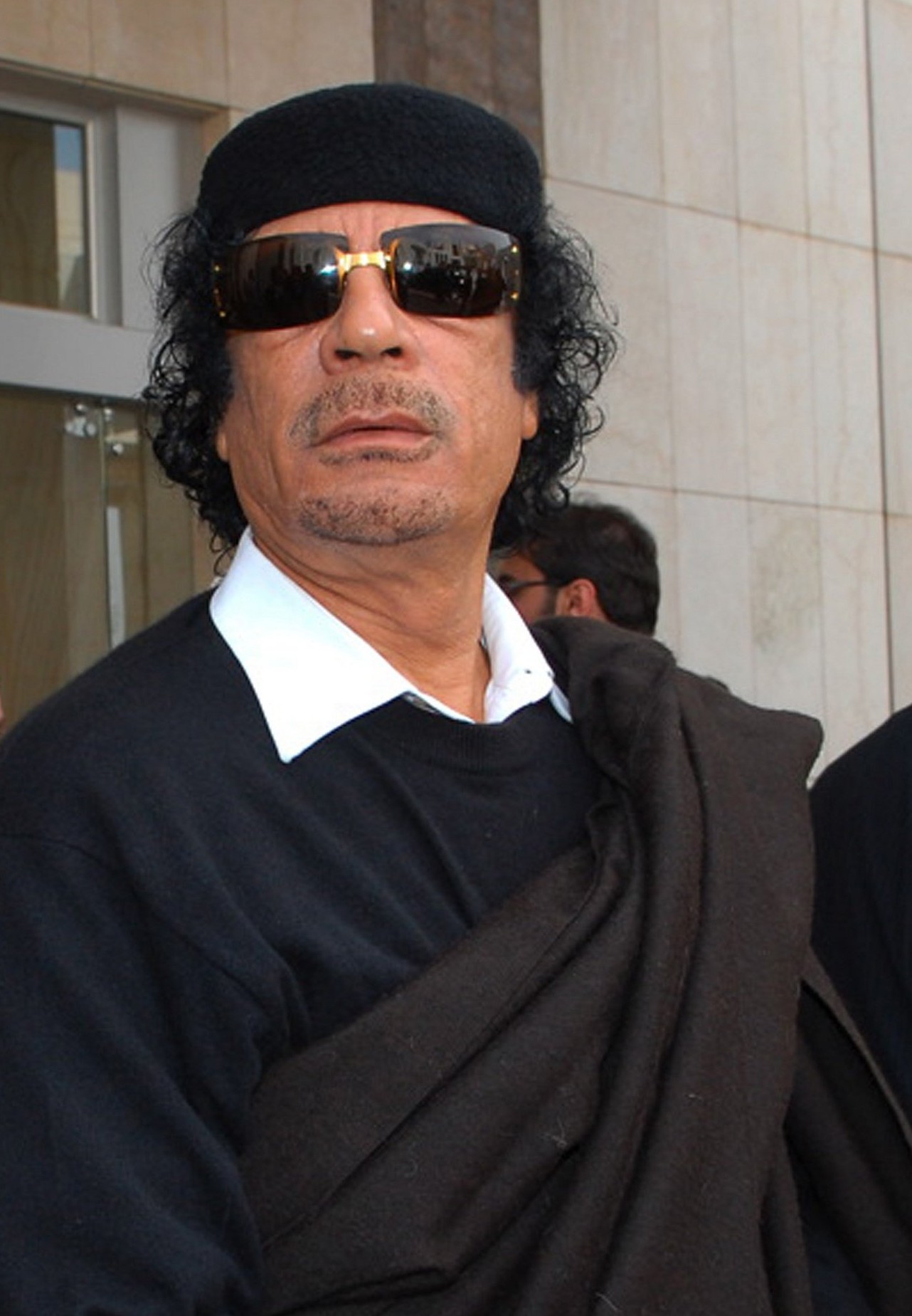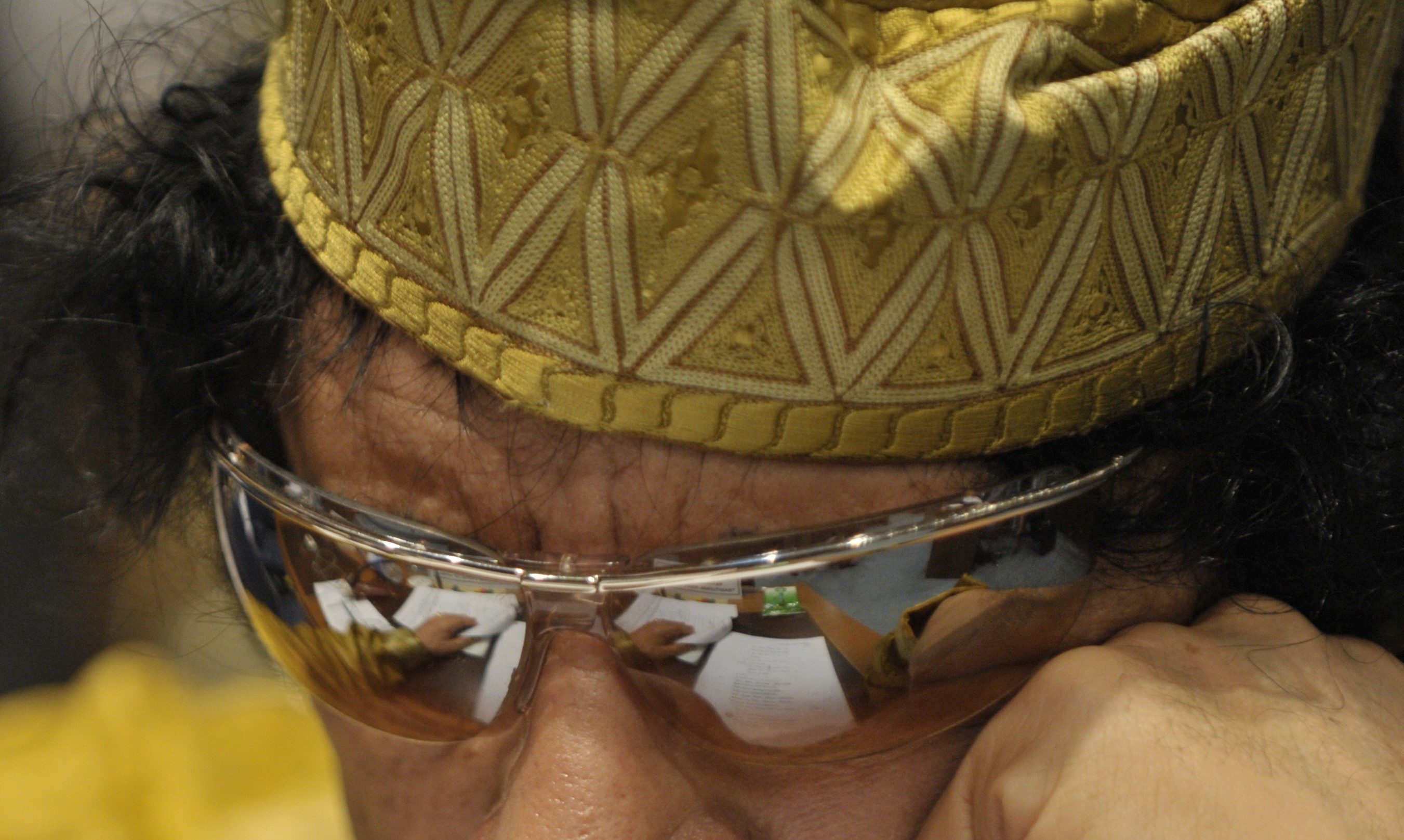
There are corresponding pieces in Wired and Businessweek about authoritarian rulers in the Internet Age, trying to defend their their regimes from wired dissidents by using new media tools and aggressive PR tactics.
“But like [Ghaida al-] Tawati, these activists would suffer greatly at the hands of Gadhafi’s spy service, whose own capabilities had been heightened by 21st-century technology. By now, it’s well known that the Arab Spring showed the promise of the Internet as a crucible for democratic activism. But, in the shadows, a second narrative unfolded, one that demonstrated the Internet’s equal potential for government surveillance and repression on a scale unimaginable with the old analog techniques of phone taps and informants. Today, with Gadhafi dead and a provisional government of former rebels in charge, we can begin to uncover the secret, high tech spying machine that helped the dictator and his regime cling to power.
The regime had been following Tawati online for years, and the harassment of her was mostly orchestrated by a group that came to be called the Electronic Army. According to former members, this loose organization was founded several years ago when Mutassim Gadhafi, one of the dictator’s playboy sons, had been enraged after videos of him attending a nude beach party on New Year’s Eve were posted online. Mutassim, who chaired Libya’s National Security Council, created a group of Internet users, some paid, some volunteer, to try to take down those videos and other anti-Gadhafi material posted online. They bombarded YouTube with flags for copyright infringement and inappropriate content; they waged a constant back-and-forth battle with critics of the regime, whom they would barrage with emails and offensive comments.
After all the cruelties she had endured as a child, Tawati could deal with the insults directed at her. But it stunned her when, in August 2010, some of her private email exchanges with other dissidents somehow got leaked to Hala Misrati, a notorious TV propagandist and one of the Electronic Army’s apparent leaders. How had her accounts been compromised, she wondered?
The answer, though she would not know it until after the regime fell, lay in a secret deal Gadhafi had made with a company called Amesys—a subsidiary of the French defense firm Bull SA—for technology that would allow his spy services to access all the data flowing through Libya’s Internet system. In a proposal to the regime dated November 11, 2006, Amesys (then called i2e Technologies) laid out the specifications for its comprehensive Homeland Security Program. It included encrypted communications systems, bugged cell phones (with sample phones included), and, at the plan’s heart, a proprietary system called Eagle for monitoring the country’s Internet traffic.”
“These New Age autocrats, he says, can no longer rule by brute force. Instead, they use ‘more subtle forms of coercion’ while investing heavily in maintaining the appearance of rights, law, and elections, and keeping their borders open so that opponents can always leave. ‘Modern dictators,’ he contends, ‘understand it is better to appear to win a contested election than to openly steal it.’ He points to Chavez, who altered legislation to boost his chances of electoral victory, then, after winning, used his poll victory to eviscerate opponents—never accepting the idea, crucial to democracy, of legitimate differences between parties. Then there’s Putin, who maintains the façade of a constitution while working in what Dobson calls the ‘seams of the political system’ to centralize power, using proxies to take over leading companies and key media outlets. Putin has created government-dominated NGOs that mimic free speech but make it harder for activists to get their voices heard.
Today’s smartest dictators, such as the Chinese Communist Party, adopt many of the technocratic methods of the most successful modern businesses, justifying their rule with their economic success. The CCP operates by consensus at the highest levels, while tailoring the government, at local levels, to enhance the delivery of services without actually opening up the political system. The party also normally keeps its internal debates internal, presenting a uniform face to citizens.”




